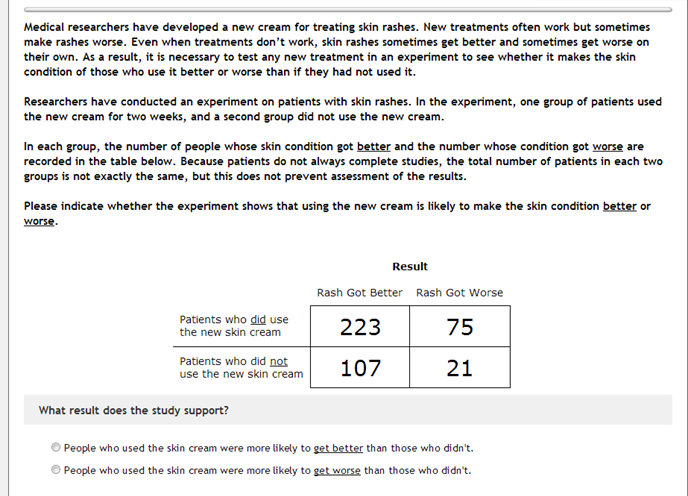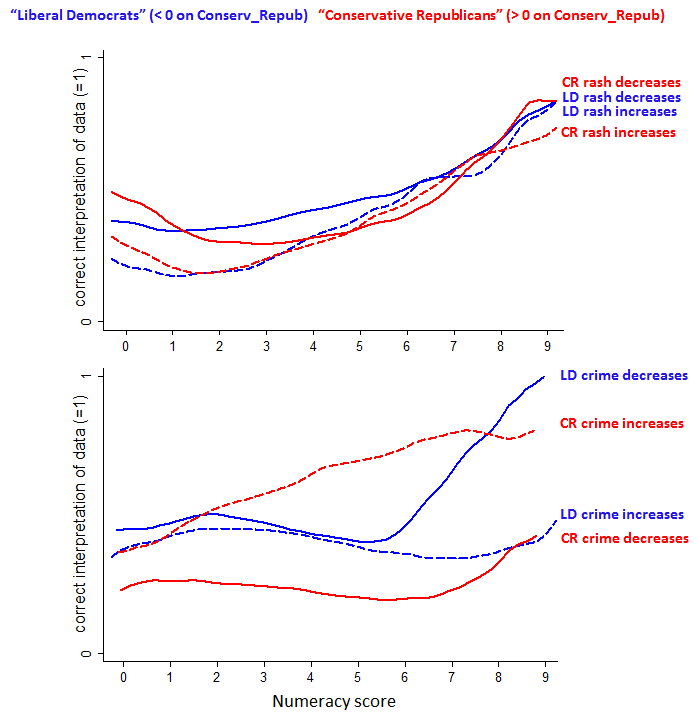I didn’t think much of Steven Pinker’s New Republic essay on “scientism” (i.e., the tired old science-vs-humanities squabble), but it did initiate an stream of amusingly stupid responses.
First came Leon Wieseltier’s response, also in the New Republic, which was a stellar example of missing the point. Although he claims to be arguing against Pinker, he spends most of his time railing against a position that Pinker very explicitly disavows (namely that scientific understanding is the only kind of understanding worth having, or that the sciences can and should subsume the humanities). By far the most interesting question raised by Wieseltier’s piece is the question of whether Wieseltier can’t understand what he reads or is deliberately misrepresenting Pinker.
Wieseltier also wins stupidity points for repeatedly using the absurd word “scientizer.”
But by far the most amusingly silly response is Daniel Dennett’s defense of Pinker. Dennett thinks that Wieseltier’s arguments are too silly to deserve attention, so he devotes himself to sarcasm. I have to admit that I liked this line,
Pomposity can be amusing, but pomposity sitting like an oversized hat on top of fear is hilarious.
but (a) this sort of thing is clearly of precisely no value in convincing anyone of anything they don’t already believe, and (b) when it comes to pomposity (although perhaps not fear), Dennett’s at least a bit vulnerable to a pot-kettle problem.
There’s just one thing in this whole business that I think is actually a bit interesting. On the subject of science vs. religion, Wieseltier says
Pinker tiresomely rehearses the familiar triumphalism of science over religion: “the findings of science entail that the belief systems of all the world’s traditional religions and cultures … are factually mistaken.” So they are, there on the page; but most of the belief systems of all the world’s traditional religions and cultures have evolved in their factual understandings by means of intellectually responsible exegesis that takes the progress of science into account; and most of the belief systems of all the world’s traditional religions and cultures are not primarily traditions of fact but traditions of value; and the relationship of fact to value in those traditions is complicated enough to enable the values often to survive the facts, as they do also in Aeschylus and Plato and Ovid and Dante and Montaigne and Shakespeare.
Wieseltier has one valid and important point here. The more strident anti-religion types love to argue as if all religious people were knuckle-dragging fundamentalists who think the Earth is 6000 years old. This is simply not the case, and by pretending it is such people are attacking a straw man. But Wiesltier himself shades the truth in the opposite direction when he says
Most of the belief systems of all the world’s traditional religions and cultures are not primarily traditions of fact but traditions of value
I’m no expert on the sociology of religion, but I’m confident that this statement is not true, at least not in any sense that’s useful for thinking about the relationship between science and religion in contemporary America.
As Wieseltier is no doubt aware, there are lots and lots of people in the world for whom statements of fact, such as “A particular man was born of a virgin, died, and later rose from the dead” are extremely important parts of their religious tradition. Following Stephen Jay Gould’s infamous idea of non-overlapping magisteria, Wieseltier simply defines religious tradition in a way that does not include such people.
There are indeed many religious people for whom questions of value and meaning, rather than questions of fact, are the only things that matter about their religion. I know quite a few of them, and I wouldn’t be surprised if the vast majority of the religious people in Wieseltier’s social circle are in this category. But there are many people — at a guess, and without any data, I’d say far more people, in the US at any rate –for whom this isn’t true. For every Christian who says that it’s not important whether the Resurrection actually happened (I know of at least one Episcopal priest who says this), I bet there are a whole bunch who say that anyone who thinks that way isn’t really a Christian.
I can understand the intellectual appeal of defining the problems of science and religion out of existence, but if you’re interested in understanding how the two cultures actually interact in present-day society, this solution won’t do.

